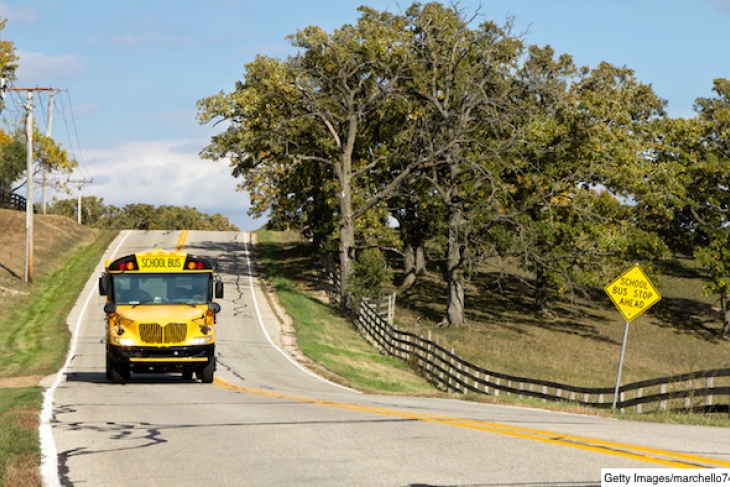Some country politicians say education reform is fine as long as it stays in town—especially in the urban neighborhoods we call “inner cities.”
These folks think it’s great to help the poor. Some of them believe in the free market principles by which school reform works. But they see no need for reform in their own backyards. That might scare the horses.
These rural sluggards showed their stuff when Senator Lisa Murkowski (Alaska) and Senator Susan Collins (Maine) voted against Betsy DeVos as education secretary. This country club might mean well, but they are wrong to oppose reform.
I have rural roots myself. I grew up in a place that is literally called “Farmersville”—a town of 700 in central Illinois. During my childhood, our area faded as its lifeblood—coal mines—closed.
I remember miners worrying about the future. They were powerless to reverse the market trends, but when all you’ve known is a coalmine, you grimace through the thin times and hope for the best.
What about the children in such places?
Once, after being away for years, I drove by the public school where I was educated through the sixth grade. A rust stain drooped below one of the letters spelling out “Elementary” on the side of the building, but everything else seemed the same. The Catholic schools I attended, on the other hand, had closed. The middle school sits unused. My high school campus, built by an order of nuns in the 1860s, has been taken over by a university.
Both of those schools could have been kept open through a choice program.
And how are the kids in the remaining public school performing? Sluggishly. According to the global report card at the George W. Bush Institute, students at my old public school perform in the forty-ninth percentile in math and are in the fiftieth percentile in reading. Suburban kids do better.
This is a national phenomenon. In Wisconsin, where I now live, rural students are less likely to be proficient in math and reading than their suburban counterparts, based on information from the state’s Department of Public Instruction.
These statistics show that rural schools need reform. A dose of innovation in curriculums and operations could change the trajectory not only of individual lives, but of whole communities. Public school kids in Wisconsin could be fluent in a foreign language by middle school. Parochial schools could be untethered from old business models and kept solvent. (If you run a parish school you can’t cover up budget shortfalls with spaghetti-dinner fundraisers anymore, and you shouldn’t have to.)
So why are rural communities resistant to education reform?
One answer is cultural. A priest I know in rural Wisconsin told me bluntly about “racism.” He was frustrated with a parish council that refused to accept vouchers despite having few students in the parish school. The community around the Sunday Mass in Spanish was filled with children, but none of them went to the parish school because they couldn’t afford it. Vouchers would have brought them in, but they weren’t really wanted.
Then there was the Republican politician in Texas who told me he wouldn’t lead on school choice because the schools were “good” in his district. To him, failing schools were an urban issue restricted to places like Houston. He didn’t need a choice program. That’s a prejudice not supported by the facts.
I don’t think that people who live in rural areas are any more prejudiced than those who live in cities. But business is done differently in the country than in town. As a country boy myself, I appreciate this.
When I was a kid, the school superintendent had one of the nicest houses in town and always gave out the best candy on Halloween. The Catholic school principal was a rock star: when you saw her outside of school—like at the grocery store—it was a celebrity sighting. Both positions had clout in town, and that’s a large part of the rural reform conundrum: these are communities where everyone knows everyone else, and that creates inertia.
After all, who wants to tell the local big shot that what they’re doing is no good? Not their neighbors, relatives or friends. Not elected officials who want to stay in office. Who?
Part of the job falls to reform advocates, who need to press policymakers to craft an agenda tailored to rural schools. This should include innovative curricula and effective school choice, but also strategies to recruit high-quality teachers. We also need to introduce country communities to the enormous benefits of change. More resources and opportunities for traditional rural schools can be joined to incentives for distance learning and virtual schools. This diversified approach would boost education for rural kids without getting bogged down in the old urban-rural impasse.
We know that it’s different in a small town than in the city. But that’s no reason to leave country kids behind.
The views expressed herein represent the opinions of the author and not necessarily the Thomas B. Fordham Institute.

